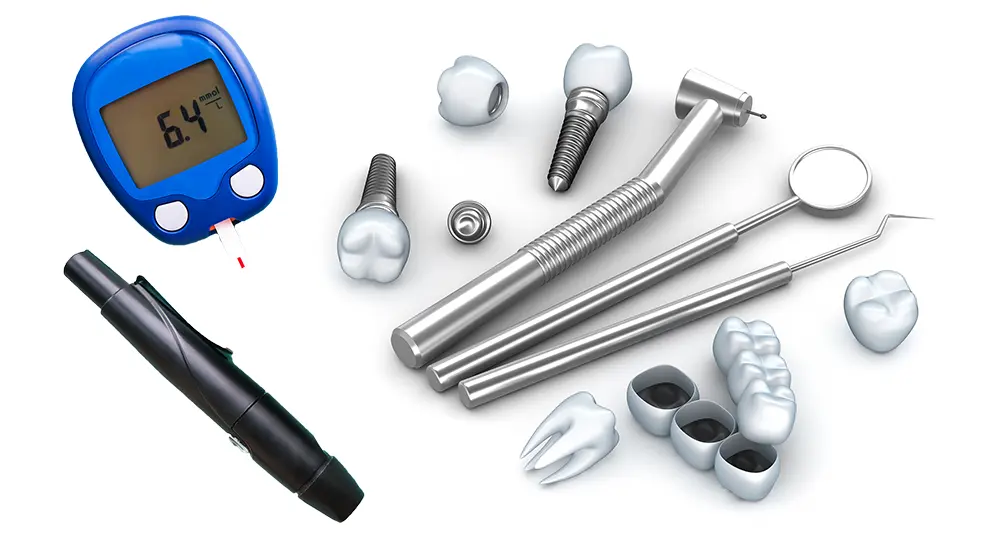
Dental Implants and diabetes. Is it possible?
Can you go under dental implantological treatment if you suffer from diabetes?
The most frequently asked question that our patients ask, is ‘We have diabetes, can dental implants be placed? Those of you who have such a problem and look for an answer to the same question, we will most definitely make you happy, because the answer is ‘Yes, they can!’. Why are there other opinions and why we answer positively? Read in the new article.
What is diabetes?
Diabetes mellitus is a disease which is characterized with a high level of blood sugar (glucose) in the organism, which is due to the weakened reaction of the cells to insulin or its insufficient production in the body. Insulin is a hormone, which is secreted by the pancreas and stimulates the cells to absorb glucose in our body to transform it into the energy needed for their functioning.
In the presence of diabetes, the cells do not absorb enough glucose, it accumulates in the blood, as a result, hyperglycemia develops, which leads to complications in the cardiovascular, nervous, and other systems in the body.
How does diabetes impact our oral health?
Patients with uncontrollable diabetes are vulnerable to a higher risk of disease of the oral cavity- periodontitis, loss of alveolar bone, as hyperglycemia alters the oral flora, collagen tissue and vascularization of soft tissues. Uncontrolled diabetes can prevent the formation of new bone around dental implants, leading to shaking and subsequent loss of implants.
With these circumstances, several specialists consider it an opposition to perform treatment with a dental implant to patients who suffer from diabetes.
Whenever a patient with diabetes is under control conditions, through medicament, their combination with dental implants is in no way a risk, but the opposite.
What type of dental implants are suitable for patients, who suffer from diabetes and why?
In general there are two types of dental implants two-part (classical) and one part (basal and compressive).
If you suffer from diabetes, the most suitable option for you is basal implants. Unlike classical implants, in which the procedure of their placement involves the opening of a lambo and the surgical manipulation is much more invasive, the basal implants are placed in the deep bone layer (cortical bone). This, in turn, does not involve dissection of the lambo and the risk of bacterial infection is minimized, as in patients with diabetes the wounds heal more slowly and the tissues recover more difficult.
If you have any further questions, do not hesitate to contact us through our contact page.








